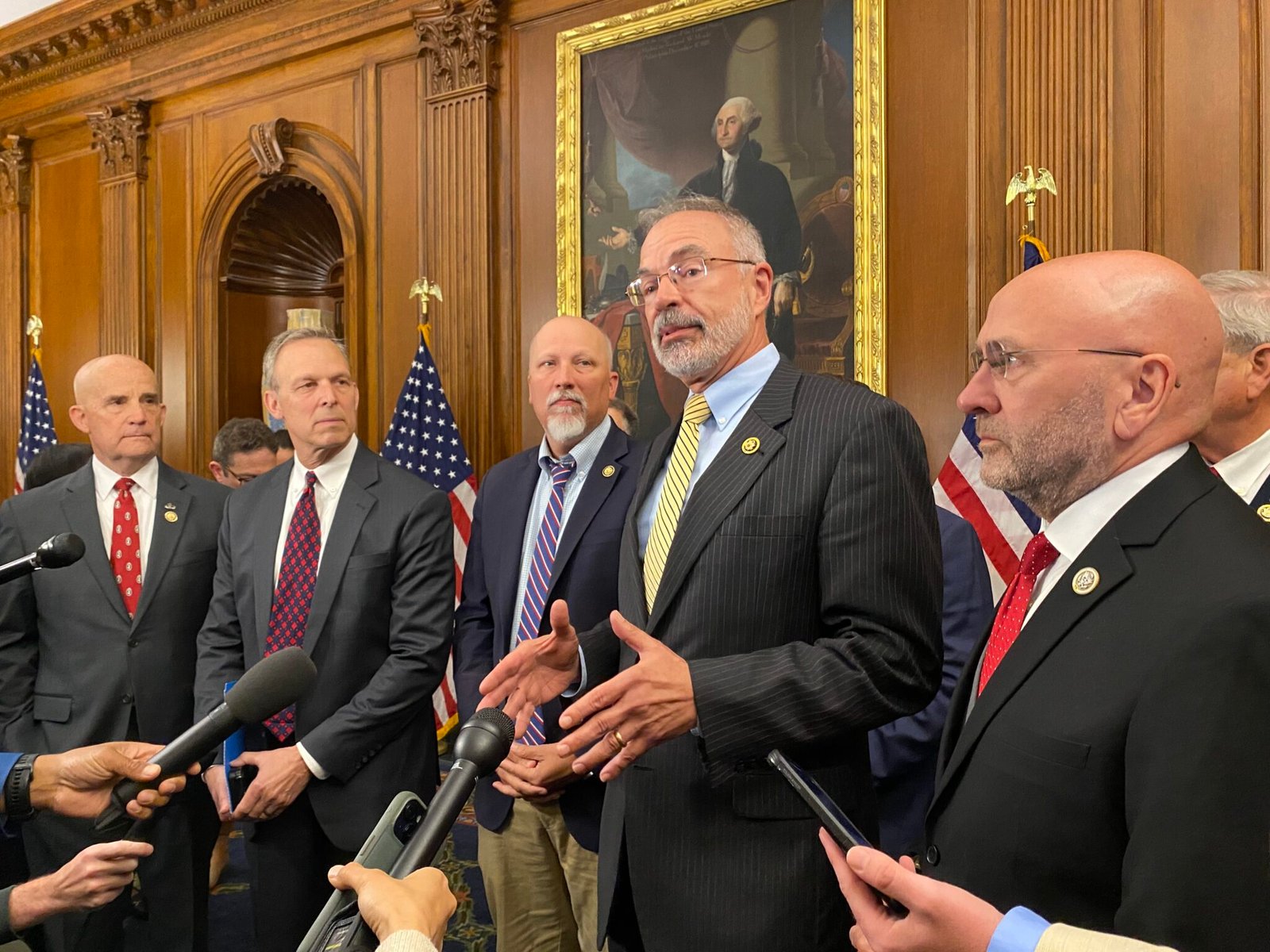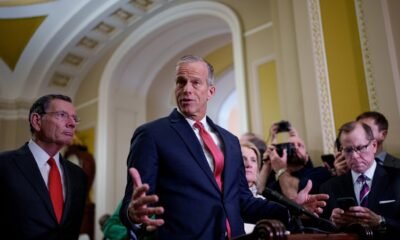DC Bureau
U.S. House GOP Overhauls Massive Budget Bill to Satisfy Hardline Faction

This report has been updated.
WASHINGTON — On Wednesday, U.S. House Republican leaders unveiled revisions to their extensive legislative package after extensive negotiations with conservative factions. These changes aim to appease demands for more significant cuts to various safety net programs, with a final vote anticipated on Thursday.
Key adjustments include accelerating the implementation of work requirements for Medicaid by over two years and eliminating provisions for the sale of certain public lands. The new proposals also expedite the timeline for clean energy tax credits while increasing the ceiling for state and local tax deductions.
The latest modifications, known as the manager’s amendment, were integrated into the reconciliation bill and approved by the House Rules Committee in a party-line vote. Notably, far-right Rep. Chip Roy from Texas was absent during the vote.
Before lawmakers can engage in a thorough debate and vote, the package must first undergo a procedural vote on the House floor. Given the slim majority, House Speaker Mike Johnson can only afford to lose a few members’ support on key votes, with Democrats expected to uniformly oppose the measures.
Among the changes, Republicans have pushed the implementation date for Medicaid work requirements forward from 2029 to as early as December 2026. This requirement affects lower-income individuals and may compel certain states to implement before the 2024 midterm elections.
Enrollees aged 19 to 65 will need to work, engage in community service, or attend educational programs for at least 80 hours each month, although exceptions exist for specific groups, including pregnant individuals and those with disabilities.
Additionally, the revised bill prohibits Medicaid from covering gender transition procedures for any enrollees, expanding previous restrictions.
On the front of clean energy, the timeline for ending tax credits established during President Biden’s administration has been accelerated to 2028, a demand from hardliners focused on deficit reduction. New facilities that begin construction after the bill’s enactment would become ineligible for these tax credits.
In an effort to accommodate Republican concerns from high-tax states, the SALT cap will be raised from $10,000 to $40,000. This allows for more significant deductions from federal taxes for constituents in states like California, New Jersey, and New York.
The initial proposal for selling public lands in Nevada and Utah has been withdrawn, a decision credited to Montana Rep. Ryan Zinke. Environmental organizations have expressed appreciation for this change, viewing it as a victory for public lands preservation.
After a meeting at the White House with President Trump, Speaker Johnson expressed optimism about gaining support from the Freedom Caucus, which previously sought more extensive reforms.
Johnson indicated that solutions to some concerns might involve executive actions from the President. The White House declared the meeting productive, emphasizing the urgency to pass the comprehensive bill.
Using the reconciliation process allows Republicans to bypass the Senate filibuster, facilitating the passage with a simple majority. This legislative strategy involves a budgetary focus and aims to restructure federal spending, particularly impacting Medicaid.
A recent Congressional Budget Office report suggested the proposed package would reduce resources for low-income families over the next decade, contrastingly benefiting higher-income earners.
Members of the Freedom Caucus voiced mixed sentiments about the timeline for the vote. While some expressed satisfaction with the progress, there were concerns regarding the pressure to finalize the legislation hastily.
Former Freedom Caucus chair Rep. Scott Perry asserted the importance of thoroughness over expedience, stressing that getting the legislation right is paramount.
This report aims to deliver an updated summary of the ongoing negotiations, which reflect critical shifts in U.S. policy, particularly concerning health care and taxation.


















